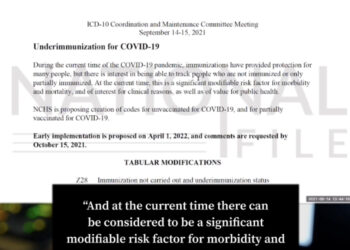Last Updated on February 17, 2022
The Associated Press Stylebook, a journalism and printed word style guide that is composed by the Associated Press and Norm Goldstein, has demanded that writers capitalize “black” when referring to race in accordance with black power race theory. “White,” meanwhile, should never be capitalized according to the Associated Press.
On Monday, the AP Stylebook Twitter account released a series of posts espousing critical race theory and racially antagonistic attitudes in journalism.
“AP style will continue to lowercase the term white in racial, ethnic and cultural senses. (1/8),” the AP Stylebook account tweeted. “This decision follows our move last month to capitalize Black in such uses. We consulted with a wide group of people internally and externally around the globe and considered a variety of commentary in making these decisions. (2/8).”
This decision follows our move last month to capitalize Black in such uses. We consulted with a wide group of people internally and externally around the globe and considered a variety of commentary in making these decisions. (2/8)
— APStylebook (@APStylebook) July 20, 2020
That includes the shared experience of discrimination due solely to the color of one’s skin. (4/8)
— APStylebook (@APStylebook) July 20, 2020
“There was clear desire and reason to capitalize Black. Most notably, people who are Black have strong historical and cultural commonalities, even if they are from different parts of the world and even if they now live in different parts of the world. (3/8),” the AP Stylebook continued. “That includes the shared experience of discrimination due solely to the color of one’s skin. (4/8).”
There is, at this time, less support for capitalizing white. White people generally do not share the same history and culture, or the experience of being discriminated against because of skin color. (5/8)
— APStylebook (@APStylebook) July 20, 2020
The account insisted that “There is, at this time, less support for capitalizing white. White people generally do not share the same history and culture, or the experience of being discriminated against because of skin color. (5/8).”
AP Stylebook has a long history of pushing politics into prose, such as replacing the “archaic and sexist” descriptor “mistress” with “companion” or “lover,” or renaming all sections on illegal immigrants to illegal immigration” so the term describes “an action, not a person.”





















